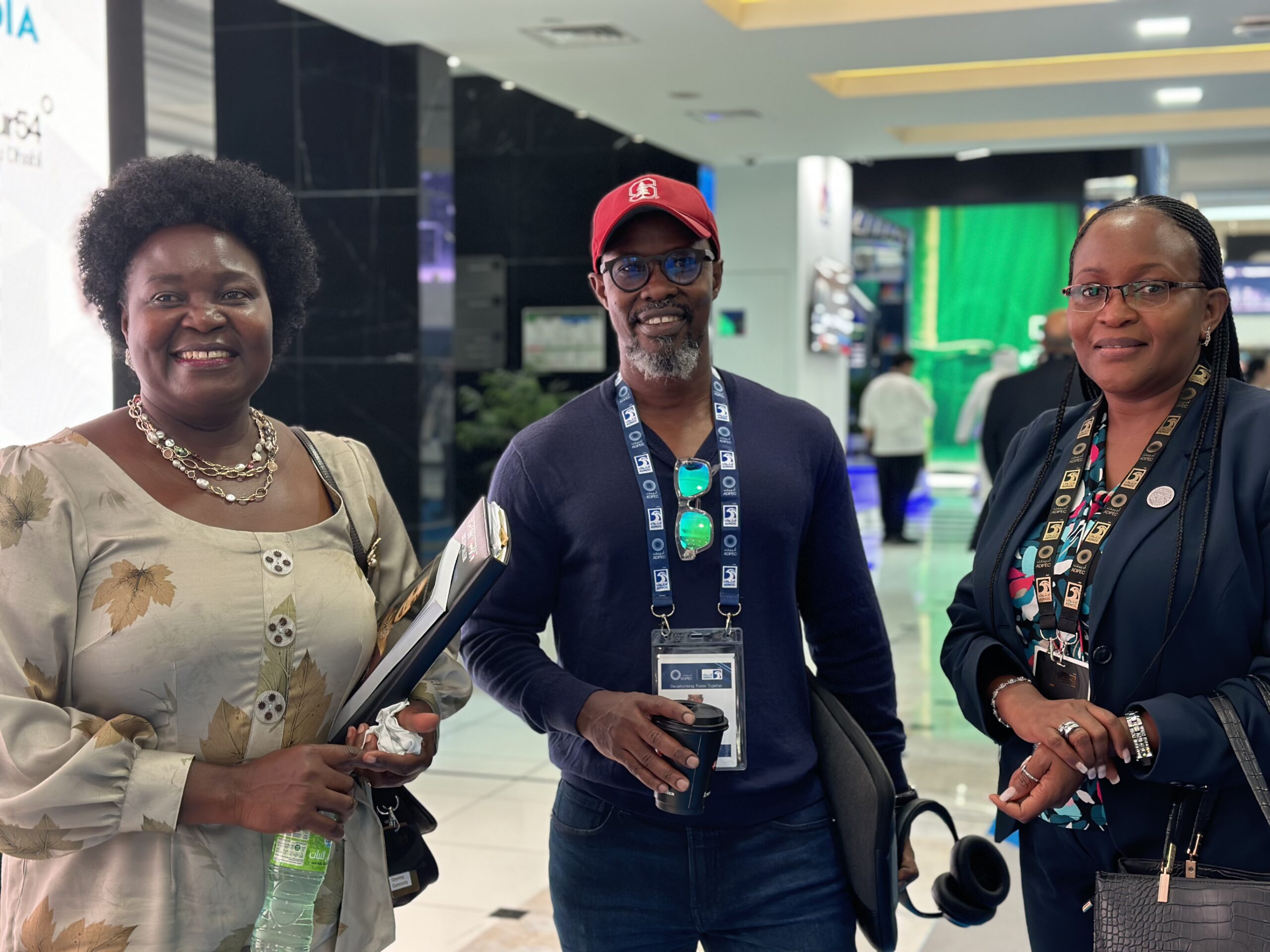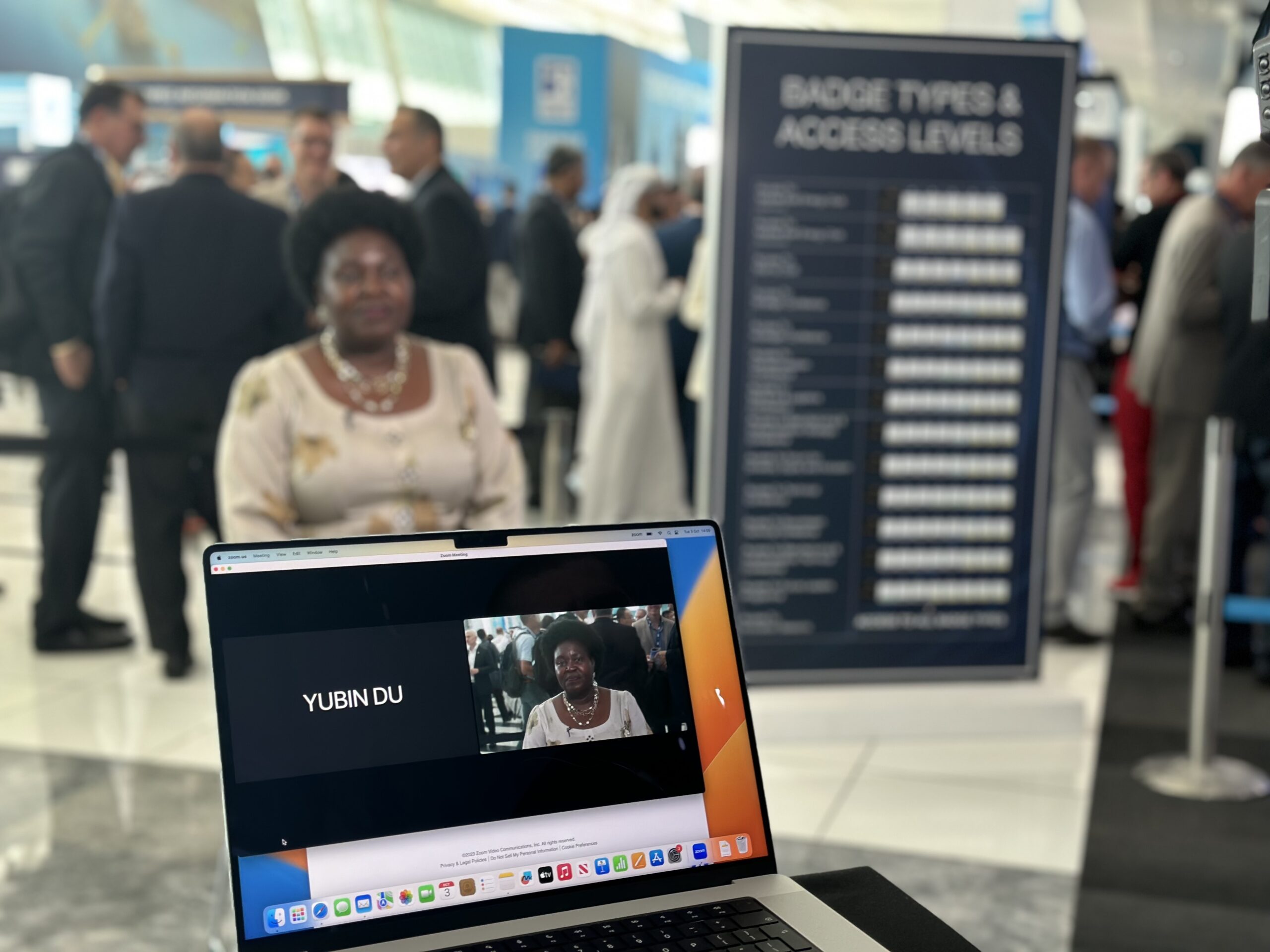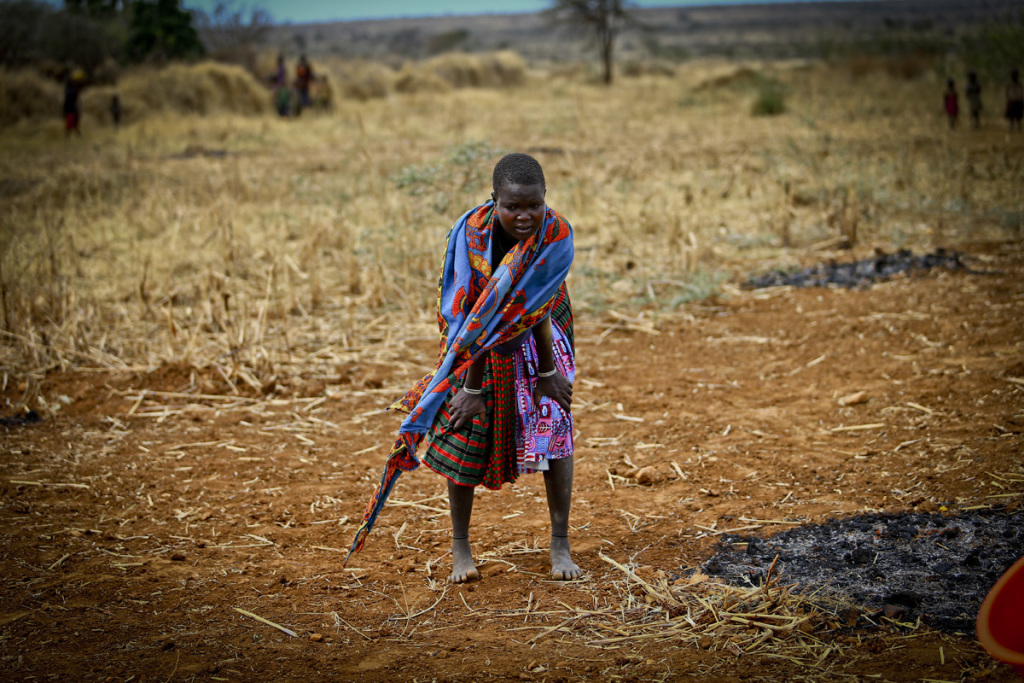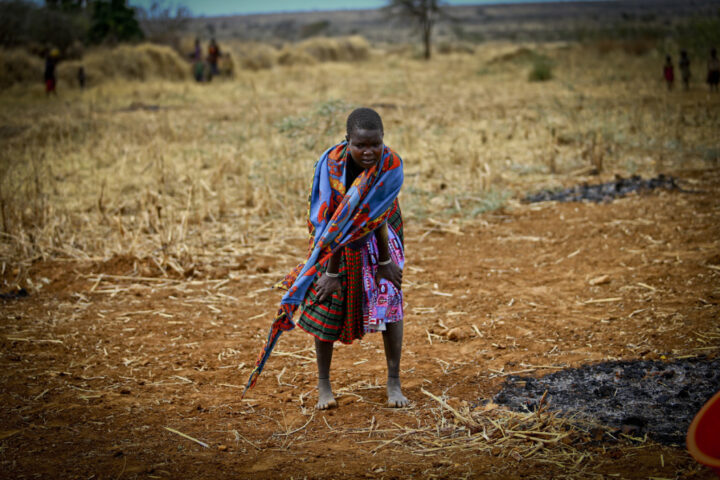2093
Uganda has reached its carbon neutrality goals. The Moyo Nuclear Plant in the north west of the country overlooking the Nile has the capacity to supply all the electricity needs of the country. Uganda’s Ministry of Energy has announced the decommissioning of some old hydro-power plants and a plan to restore all the forest cover in the country.
PRESENT DAY – Abu Dhabi, United Arab Emirates
This year’s ADIPEC, one of the largest gatherings of the global oil industry was more of a climate change meeting other than a specialty meet-up of the engineers, scientists, traders, and government leaders that represent the interests of global oil.
“Decarbonisation”, “energy transition” (a loaded term by the way as we will see) and energy security (the last vibrating the seismic effects of geo-political events in Europe) sounded across the strategy sessions in the course of the four-days. As delegates thronged the halls, suits, trendy business casual and white spotless dishdashas and black abayas doing deals and checking out new technology, it was obvious that unlike previous ADIPEC gatherings, the climate question loomed large and challenged the future of such meetings.

Will there even be an ADIPEC in the near future? What future would that be?
“We must define decarbonisation clearly” said Hon. Ruth Nankabirwa to me as we waded our way through the human sea from one meeting to another. Nankabirwa is a pioneering woman Minister of Defense who currently holds the brief in the Uganda cabinet for energy, minerals, and petroleum. “With the right walking shoes, I can walk the whole day” she adds saying walking in Kiboga District where she has been planting forests for 20 years “is one of my favorite things to do” She also tends to practice her phrases and thoughts in conversations, testing them out before arguing them on camera revealing the practical habits of a skilful politician.
“Decarbonisation in Uganda is about saving our forest cover, not cutting down trees for charcoal and firewood” she launches. “In Europe or America, decarbonisation may mean using solar and wind energy instead of fossil fuels. But in Uganda many have never seen a power line. They are energy poor. We must first deal with energy poverty” she adds.
Uganda has an election in less than two years she says reaching for her phone and instructing an assistant to prepare a status update on electricity. Investment in expanding the electricity grid is one of her top priorities. “Voters are very sensitive about this issue. I will celebrate when I connect West Nile (the region where I am from) to the power grid. But we are close” she adds.
The series of conferences in the UAE, ADIPEC which just ended, and in a few weeks COP28 drives home the dilemmas of the global energy as well as the real challenges of climate change. These challenges are often presented in terms of a moral order. Saving the planet comes first, then there is the nexus of food, water, and energy all under the rubric of “sustainability” a contrast to the idea that the planet may well die if humans do not build a rational relationship with it that keeps us alive as well.
But again, this moral order is mapped unto a political and economic system that is unequal by nature which is part of this story. Since carbon, the by-product of fossil fuels is the main culprit, the global oil industry has found itself often on the defensive.
One can visualize Big Oil standing in the dock while its accusers in their multitudes lay loud charges against it. Some shrill voices advocate for a life sentence and banishment. Others say only death – a complete demise of the industry will do.
All are aware that there is no adequate replacement yet for fossil fuels. But yes, let us discuss solar, hydrogen and so forth. It does not help that the oil industry is fused at the hip with violent political competition that have turned oil producing regions and nations into little more than assets that bigger powers plot to deny their opponents. Beyond geo-politics oil has come to represent the worst of global capitalism – greed often caricatured as the corrupt African despot with Swiss Bank accounts and fleet of Ferraris, a garish picture which in my view obscures the structural political problems of global oil which have little to do with carbon but more to do with power. Just for context I heard that of the 100 million barrels of oil consumed a day, 50 million is consumed by three regions, Europe, China, and America which is very much shorthand for the political issues referred to here as well as the imbalances and contradictions that are inevitable in finding a common cause to graduate from carbon to some other fuel that will not harm the planet.

In brief what it means is that large oil consuming economies that extract the most value from the commodity have two things going for them; first is their self-interest sometimes referred to as “security of supply” that requires governments involved to take steps to guarantee supply for their economies, secondly is the formidable capital reserves that shall determine the pace and scale of decarbonization which by its nature requires massive investments in new ideas, technology and so forth. Thus, in many ways these distortions and dilemmas of history, power and interests bring the drama to the table.
“When you tell an old woman in my village to transition, transition from what? From firewood to solar? To wind energy?” laughs Proscovia Nabbajja, a geologist and head of Uganda’s National Oil Company who was one of the African speakers at the conference. Mirth aside she argues that as a practical matter, countries like Uganda, who are committed to discharging their responsibility to Mother Earth, have to deal with the realities of their own development.

“They want us to decarbonise, before we carbonize” she adds jokingly referring to the needs of the Ugandan economy for industrialisation, jobs, and its own security of supply. “To get to the point where we can transition, we need to answer whether we have alternatives that are accessible, available, affordable and sustainable” she argues.
Before all that, can Uganda talk of “accelerating” decarbonisation?
Dialogue and engagement at conferences is very much about drama and propaganda. At ADIPEC “Decarbonize. Faster. Together” was emblazoned in blue overhanging banners all over the Abu Dhabi National Exhibition Center. These no doubt be replaced in a few days by COP28 slogans in Dubai. Slogans aside the world outside this conference like everywhere hummed to a different beat.
Whenever ADIPEC is taking place the conference area is zoned and traffic controlled. This means major hold-ups and delays unusual for the city. Many visiting delegates who arrived in cabs, unaccustomed to the heat and humidity of the UAE, would walk the 600-800 meters of the conference with some mild discomfort. The heightened security at the conference also means patient queues to get in, badge verification and the general order and efficiency that typifies UAE event management.
October begins the cooling off period of the dessert summer, but most visitors would not know just like newcomers assuming the desert is perpetually hot would be freezing outside in December during the colder months. The cool weather perhaps because of climate change has been gratefully longer in the last few years.
Once inside there is the relief at the air conditioning which can be intense for some persons. All in all, the world in which fossil fuels exists has many advantages and walking into the conference – past the parade of Nissan Patrols ( there are Teslas too) confirms it in a different way.
Many a speaker thus made the point that oil, it’s practical utility and economy, shall remain with the world for the foreseeable future. Net zero or “carbon neutrality” goals are self-explanatory and some of the best arguments I heard were about the realities of the energy transition, how no single energy source will be sufficient for such a transition for example or that every country will have to adapt to a mix eventually and the salvation of the planet can only come through optimization of renewable sources of energy on a global scale but with different calendars.
Uganda at ADIPEC also brings forth contrasts that help illuminate these dilemmas and present some potential areas of the kind of “system wide collaboration” that gets into the heart of the issue.
The UAE, a major trading and investment partner of Uganda is a mature oil economy while Uganda, which discovered commercial deposits in 2006, expects to export the first barrel of oil in 2025. Uganda is a tropical paradise but now first losing its forest cover by 125,000 hectares annually while the UAE is a desert and in fighting desertification has a program to plant more trees, some 100 million mangroves by 2050. Thus, where carbon sequestration is a function of tree planting for the UAE to get to net zero, Uganda without alternative sources of energy will go in the opposite direction.
Moreover, as economies with oil and similar net zero goals, the two countries arrive at decarbonisation differently. Often the two countries are on the same side of the picket line when facing calls to move away from fossil fuel projects and both defend the rationale of growing while decarbonising. “The world cannot reach net zero unless the global south also reaches net zero” is how Nabajja puts it, referring to the opposition that the East African Crude Oil Pipeline has faced as campaigners have targeted Western financial institutions to stay away from it.
While financing for the pipeline is nearing closure (money for this is coming from Chinese sources), Uganda needs investment for refining the rest of its crude locally to support an ambitious LPG program that aims to mass distribute gas cooking stoves and move millions of homes away from wood and charcoal for cooking to the cleaner natural gas option.
In the conversation economy (conferences, speeches, and media), the justice of this argument – to grow while decarbonising, is what is often drowned out with dramatic, simplistic but loud denunciations of African fossil fuel projects (ironic too since Africa bears a negligible role in polluting the planet).
But it also distracts from a very practical answer to the net neutrality “pathway” namely that financing of economic growth that is responsible to climate change needs allows for countries in the Global South to meet their needs while de-carbonizing or what Nabajja refers to as building a carbon-free economy nearly from scratch.
This leverages capital from the carbon-dense global north for a climate friendly offset that does not harm profits. As someone pointed out the difference between Uganda and other African countries and the UAE is that the latter’s rulers traded their natural resources for fair market prices allowing them to accumulate the reserves to turn the desert into an amazing destination while natural resources flowing out of Africa including gold and other minerals have been at bargain prices.
This needs factoring into net zero and we shall return here to write about Uganda’s policy of banning export of all unprocessed minerals , why it is gaining traction around Africa and why it needs to be factored into the decarbonisation debate.









